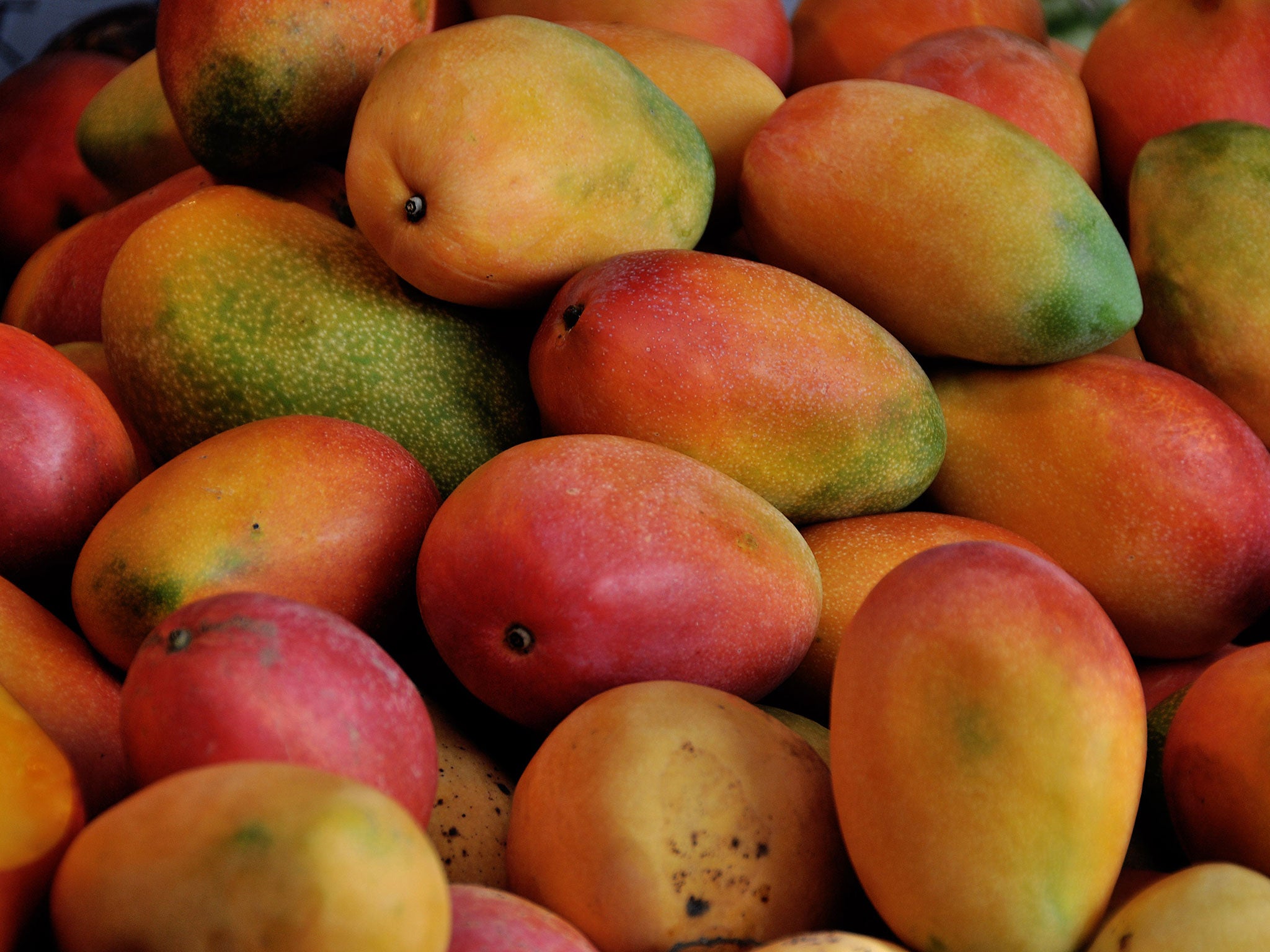Indian scientists develop 'seedless' mango - well, almost
Researchers at a Bihar university have successfully grown a fruit variety with smaller stones

Your support helps us to tell the story
From reproductive rights to climate change to Big Tech, The Independent is on the ground when the story is developing. Whether it's investigating the financials of Elon Musk's pro-Trump PAC or producing our latest documentary, 'The A Word', which shines a light on the American women fighting for reproductive rights, we know how important it is to parse out the facts from the messaging.
At such a critical moment in US history, we need reporters on the ground. Your donation allows us to keep sending journalists to speak to both sides of the story.
The Independent is trusted by Americans across the entire political spectrum. And unlike many other quality news outlets, we choose not to lock Americans out of our reporting and analysis with paywalls. We believe quality journalism should be available to everyone, paid for by those who can afford it.
Your support makes all the difference.If you hate de-seeding you favourite fruit, you might be glad to hear that scientists in India have reportedly successfully grown a “seedless” mango.
Researchers at the Bihar Agriculture University (BAU) have borne a fruit that is sweet and juicy – but without that large pesky stone in the centre.
The new variety, called Sindhu, weighs around 200g and is less fibrous than other types of mango. According to Quartz, the seed accounts for less than 10 per cent of the total weight of the fruit, compared to 15 to 30 per cent in other varieties.
But before you get too excited, it's more of a development than an invention in the fruit stakes.
V B Patel, chairman of the horticulture department at the university, told the news site: “Neither have we developed this mango nor is it seedless.
“We simply tested this variety.”
However, he told Indian news service IANS: “We are happy and enthusiastic as well as confident and hopeful of improving the seedless mango variety.”
Sindhu was originally developed at a regional fruit research station at the agriculture university Konkan Krishi Vidyapeeth, Dapoli, in Maharashtra
BAU planted its own mangoes in 2011 and this is the first year the tress have yielded produce; the university is now working to make the fruit available to local mango growers on an experimental basis.
Vice chancellor M L Choudhary told IANS: “The seedless variety also has good export potential.”
Bihar is a major producer of mangoes and, according to the National Horticulture Mission (NHM), produced 1.5 million tonnes of the fruit last year.
Join our commenting forum
Join thought-provoking conversations, follow other Independent readers and see their replies
Comments